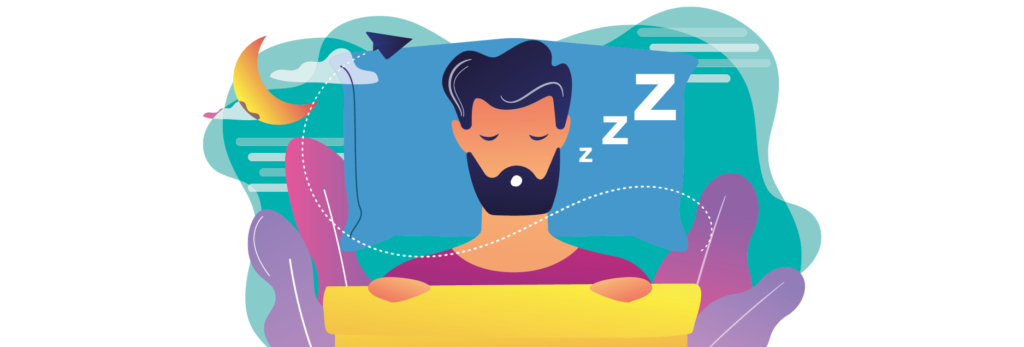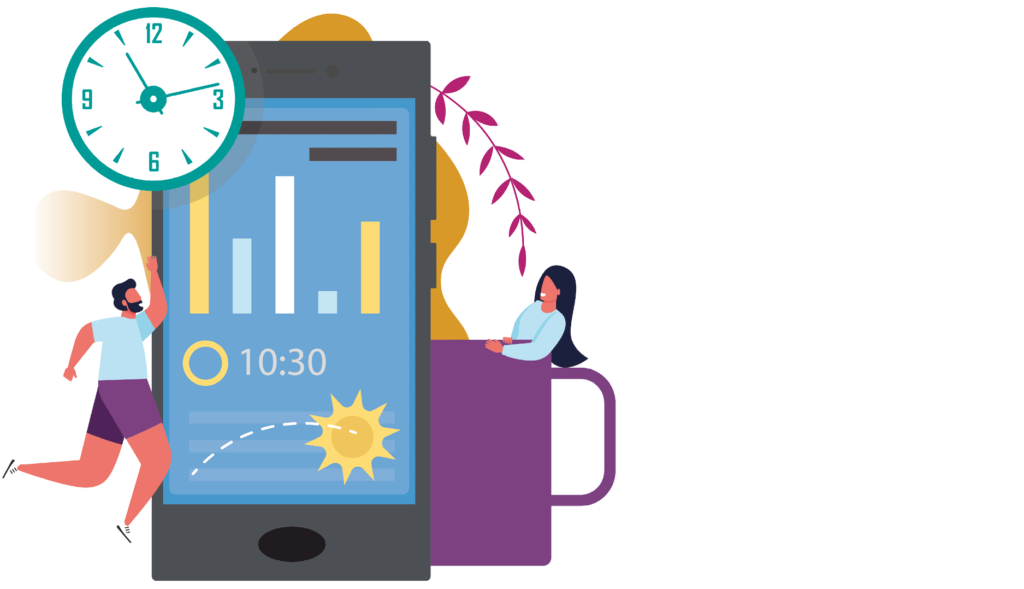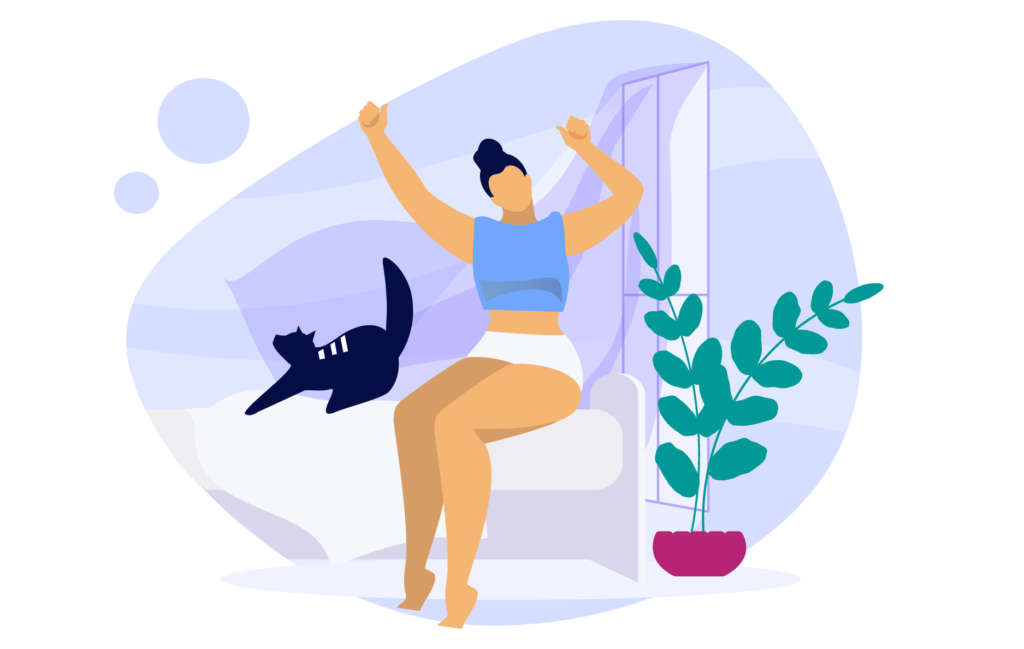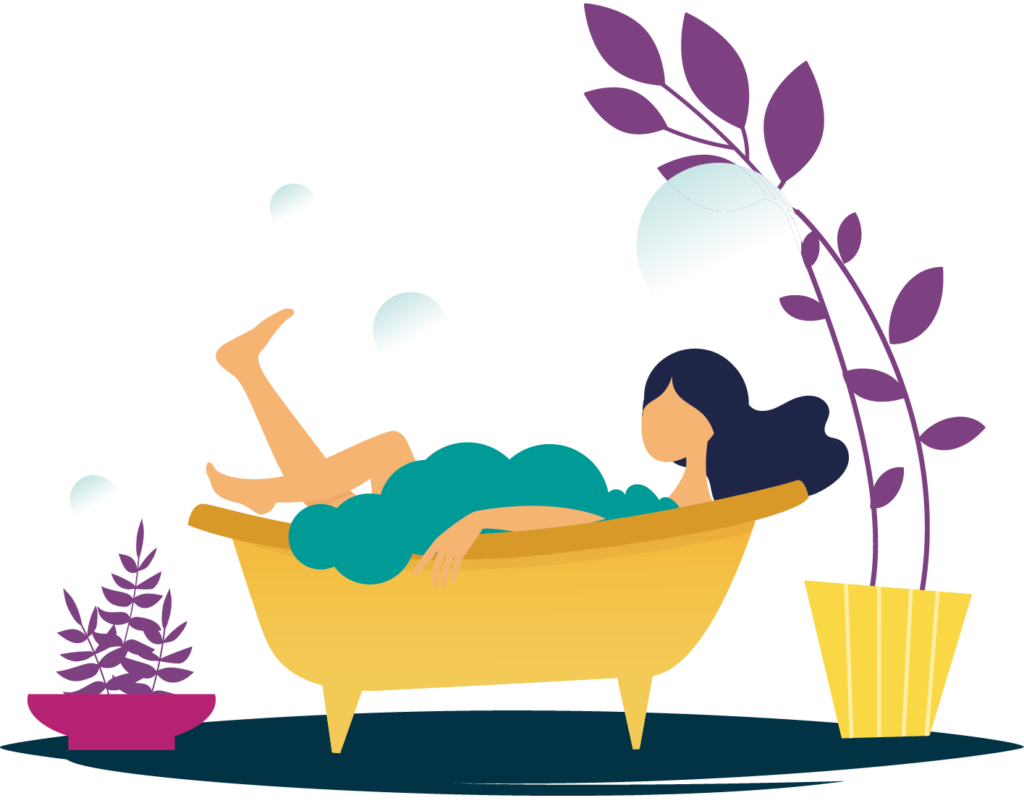TOSLEEP, PERCHANCE TO DREAM
Did you know...
that we evolved to be asleep for a third of our lives? It’s an interesting fact. It’s also something that modern life has swept under the bedroom rug.
Getting a good night’s sleep is easy to ignore. Our work, personal lives and that new Netflix show tend to gain dominion over our waking hours. Except, we’re often left feeling lethargic, moody and not entirely ready to seize the day.
To combat this epidemic of sleeplessness, we’ve researched the best tips and tricks for you. They should help you put your restless nights… well, to rest, so you can Sleep Well and Dream Big.
Sleep Seminar
with Dr Lizzie Hill, Lecturer in Sleep Medicine, Oxford University
Sleep Scientist’s
secrets for
Modern life has been described as “good-ish.” It’s that ‘ish’ bit that keeps us from getting proper sleep. After all, we spend most of our time worrying about money, work, friends and family. Not to speak of society, the environment or politics. It’s hard not to be on the edge of your bed.
Luckily, there are ways to balance out the ‘ish’ and make your sleeping schedule just plain ‘good’. A few simple and scientifically proven brain exercises will help you clear your busy mind, so you can go to sleep like a pro.

Articulatory Suppression
Mouth a word repeatedly. Do it at a fast pace. It’s hard to think about anything else, right? You’ll want a short word you can repeat 3-4 times per second. Such as ‘cat’. This simple trick will distract your mind and get you to dream a lot quicker (hopefully about kittens).
Imagery Distraction
Try to imagine yourself in an engaging scenario. Maybe you’re at a luxury beach holiday. Or you’re prepping a delicious meal. Now, experience every detail as deeply as possible: imagine the sights, the sounds, the smells… that sense of drowsy relaxation… are you still up?
TOP TIPS FOR
A Good Night’sSleep
I Got Rhythm
March to the sleepy beat
of your own drum
Don’t save your sleep for the weekend. Your sleep schedule needs a rhythm. The great thing is that finding your beat doesn’t take much.
It’s best to work backwards.
When do you need to get up to make it to work on time?
Say your alarm needs to go off at 8am.
You want a solid 8 hours of sleep, right?
Then, ideally, you’ll want to be asleep by 12am.
Working by this logic, you’ll know what time is reasonable to call ‘bedtime’. You can see that ‘calling it an early night’ might not even mean that early.
After a while, your new sleep schedule becomes second nature. Who knows, maybe your alarm clock becomes redundant. But be aware, lie-ins can trip up your steady beat. So, to keep up your rhythm, it’s best to maintain your sleep schedule throughout the weekends.

(Dare we say…)
Avoid Coffee
Did you know that caffeine will stay in your system for up to six hours after you’ve had your first sip? We can’t really blame coffee. After all, it’s only doing its job. But just be mindful: fast juice makes it hard to slow down at night.
Decaf is a good alternative. As is hot chocolate, or camomile tea.

Sleeping Beauty
(Bedroom aesthetics)
Call it Chi or great taste, aesthetics are the new social currency. Sure, they may seem like a fleeting trend. But finding the perfect bedroom design will improve your sleep quality.
Paint your walls a calming colour. White minimalism may be chic. But is it tranquil? Not quite. Think Tranquillity Base Hotel and Casino and add some mellow blues, yellows, purples or even a nice grey to your walls. And swap high gloss for matt tones. It really works.
Better yet, try to keep your bedroom just for sleep. That way, your mind will immediately associate slumber time with being in your room. And don’t forget to remove any distracting electrical devices.
BEDROOM = SLEEP

Pre-SleepRoutine
Develop your own personal winding-down routine. It will help you get to sleep faster every night.
The trick is to try and ease the transition between being awake and being asleep. You simply need to do as many relaxing things as you can before bed.
Simple things are best.
Turn off the TV. Then your phone. Have a shower. Better yet, have a bath with a fancy bath bomb and fine jazz. (If jazz isn’t your jam, Ed Sheeran will do just fine.)
Then get cosy under the covers. Read something light, like Bridget Jones. This is not the time for hefty reports. Trust us. Before you know it, you’re dozing off.
The key is to do these things every evening in preparation for some all-star sleeping. The best part is that anytime you start to do elements of your routine, you’ll immediately feel more relaxed.

Blue (light)
Is not the warmest colour
Blue light reduces the amount of melatonin (a sleep hormone) that your body can produce. Without it, you will struggle to relax, and you’ll have trouble falling asleep.
As luck would have it, electronic devices are the biggest emitters of blue light aside from the Sun. That’s why it’s best to minimise your clicking and scrolling before going to bed.
But if you are a late-night Netflix binger, you can try a blue light filter. You’ll still be able to watch your shows, but without your body keeping you wide awake.


Daylight
Twilight
Just like a fabulous flower ready to bloom, you should aim to get your daily dose of Vitamin D.
Getting up to 30 mins of daylight can be beneficial for your sleep. How so? Sunlight helps regulate your circadian rhythm, your body’s natural clock. It basically tells you to release hormonal chemicals that keep your body and mind energised.
But at night, the opposite is true. The aesthetic darkness of vampires is what we’re after. You see, your body easily recognises any form of light. And when it does, it won’t let you sleep.

WAYS TO
Relax

A relaxing schedule is unique to each and every person.
An ASMR podcast featuring the sounds of whales isn’t going to be everyone’s ticket to a sound night’s sleep.
But there are some simple ideas that could help you feel more relaxed and ready for bed:
Read a book
Read a book or listen to the radio. Leave your thoughts behind and focus on something else. Focus on listening to sounds coming from the radio. Try to shut out your other senses, and you should find yourself falling asleep in no time.
Try not to eat after 7pm
Try not to eat after 7pm. Your body will keep itself awake as it tries to digest food. A late-night pepperoni pizza will leave you with an aftertaste of insomnia.
Write your to-do lists
Write down your to-do lists for the next day. We rarely produce our best work in the evening. Try to leave things until the next day. Instead, have a good night’s rest, and your productivity will soar in the morning.
Take a warm bath
Take a warm bath. Treat yourself to a lavender bubble bath. This will bring your body to its ideal sleeping temperature. Think of all the time you save instead of thawing out your icy toes under the blanket.
Don’t force sleep
Don’t force yourself to sleep. It won’t work, especially when you aren’t tired. Sadly, we don’t have Jedi powers to force ourselves into sleep. In fact, pressure will only keep us up. Instead, if you’re not asleep after 20 minutes of going into bed, get up. Go into another room, and do something relaxing until you’re tired enough to sleep.

Always Be Rested
Perhaps we’ve made you wonder: why is a creative content marketing agency like Always Be Content hosting a seminar about sleeping well?
The answer is simple: it’s part of our ethos.
We believe that the real focus of any business is to provide useful, sustainable solutions to people. Solutions that add value and help everyone lead better, more fulfilled lives.
For our clients, this perspective helps create progressive strategies. It derives long-term, profitable growth from the virtuous circle of:
• Excellent customer outcomes
• Commitment to sustainability
• Highly engaging campaign creation
We passionately believe that any business can grow by building long-term customer relationships based on positive business practices.
In short, you can do well by doing good.
If you’d like to know more about our unique creative ethos, please get in touch.


